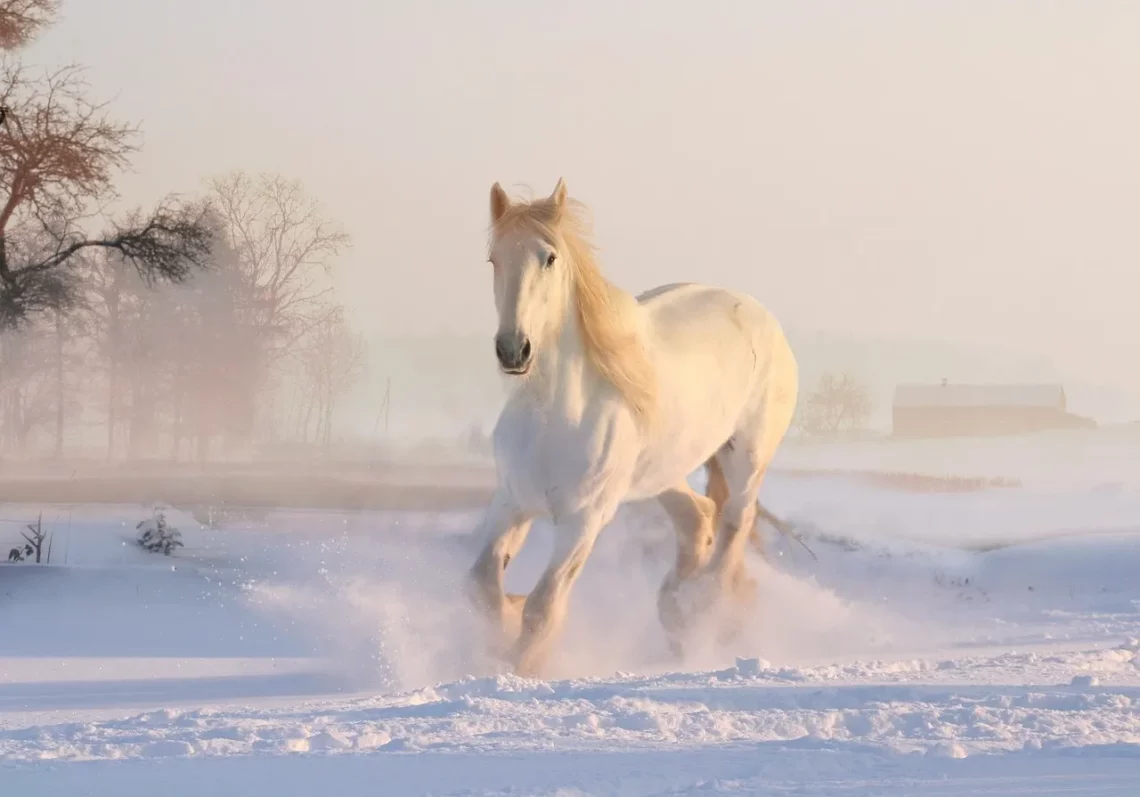
Understanding the Average Life Expectancy for Horses
Horses have long been companions to humans, admired for their beauty, strength, and intelligence. For centuries, they have played vital roles in agriculture, transportation, and recreation. However, as with any living creature, the average life expectancy of a horse is a topic of interest to many horse owners, enthusiasts, and breeders. Understanding how long horses typically live can help owners make informed decisions about their care, training, and overall well-being.
Factors such as breed, genetics, environment, and healthcare all contribute to a horse’s lifespan. While some breeds are known for their longevity, others may face health issues that could shorten their lives. Additionally, proper nutrition, regular veterinary care, and a suitable living environment can significantly influence a horse’s well-being and longevity.
As we delve deeper into the intricacies of horse life expectancy, we will explore various aspects that affect how long these magnificent creatures can live, from breed characteristics to lifestyle choices. This understanding not only enriches our knowledge of equine care but also fosters a better relationship between horses and their humans.
Factors Influencing Horse Longevity
The lifespan of a horse can be influenced by a multitude of factors, each playing a significant role in the overall health and well-being of the animal. Understanding these factors is essential for any horse owner or enthusiast who wants to ensure a longer, healthier life for their equine companions.
Firstly, breed plays a critical role in determining life expectancy. Some breeds, like the Arabian, are known for their longevity and can live well into their thirties. Other breeds, particularly those bred for speed and performance, may have shorter lifespans due to the physical demands placed on them. Factors such as genetic predispositions to certain health issues can also affect how long a horse lives.
In addition to genetics, nutrition is another pivotal factor in a horse’s lifespan. A balanced diet tailored to the specific needs of the horse can prevent many health issues, from obesity to metabolic disorders. Horses require a diet rich in fiber, primarily from hay or pasture, along with appropriate vitamins and minerals. Dehydration and improper feeding practices can lead to severe health complications and shorten a horse’s life.
Healthcare is also paramount. Regular veterinary check-ups, vaccinations, and dental care can prevent many diseases and health issues. Horses that receive proper healthcare are more likely to live longer, healthier lives. Preventive care, such as parasite control and hoof care, cannot be overlooked and plays a significant role in a horse’s overall health.
Environmental factors, including living conditions, also contribute to a horse’s longevity. Horses need ample space to roam and graze, as well as shelter from extreme weather conditions. A stress-free environment with social interaction can improve a horse’s mental well-being, further contributing to a longer life.
Lastly, the level of exercise a horse receives is vital. Regular physical activity keeps a horse in shape and helps prevent obesity and related health issues. However, it’s essential to balance exercise with rest to avoid injuries, which can also impact longevity.
The Role of Proper Nutrition in Horse Lifespan
Nutrition is one of the most significant factors influencing the lifespan of horses. Just like humans, horses require a well-balanced diet to thrive, and deficiencies or imbalances can lead to a host of health problems that may shorten their lives.
A horse’s diet should primarily consist of high-quality forage, such as hay or pasture grass. These provide the necessary fiber that is crucial for proper digestion. Horses are designed to graze for long periods, so access to pasture is ideal. However, the quality of the forage is equally important. Poor-quality hay can lead to respiratory issues and colic, both of which can affect longevity.
In addition to forage, horses require concentrated feeds that provide essential nutrients. These feeds often contain grains and supplements that can help meet the energy and nutritional needs of performance horses or those with specific health considerations. However, it’s crucial to introduce any new feed gradually to avoid digestive upset.
Water is another critical component of a horse’s diet. Horses should have access to fresh, clean water at all times, as dehydration can lead to severe health issues. Monitoring water intake can also provide insights into a horse’s health; a sudden decrease in drinking habits may indicate a problem that needs addressing.
Moreover, special dietary considerations may be necessary for older horses or those with specific health issues. Senior horses may benefit from soaked hay or senior feed that is easier to chew and digest. Horses with metabolic disorders may require specialized diets to manage their conditions effectively.
Finally, working with a veterinarian or equine nutritionist can provide valuable insights into creating a tailored feeding plan that meets the individual needs of each horse, contributing to their health and longevity.
Common Health Issues Affecting Horses
While many horses can live into their thirties, various health issues can significantly affect their lifespan. Understanding these common health problems can help owners take proactive measures to ensure their horses live long, healthy lives.
One of the most prevalent issues among horses is colic, which refers to abdominal pain that can result from a variety of causes, including dietary changes, dehydration, or parasites. Colic can be life-threatening if not addressed promptly, making regular veterinary care essential for prevention and management.
Laminitis, or founder, is another serious condition that affects a horse’s hooves and can lead to chronic pain and lameness. This condition often arises from metabolic problems or overfeeding, highlighting the importance of proper nutrition and regular hoof care in maintaining horse health.
Respiratory issues, such as heaves or allergies, can also shorten a horse’s life. These conditions are often exacerbated by poor living conditions, such as dusty environments or low-quality hay. Ensuring that horses have access to clean air and proper shelter is essential for their respiratory health.
Furthermore, dental problems can significantly impact a horse’s ability to eat and absorb nutrients. Regular dental check-ups are necessary to identify issues such as sharp points on teeth or missing teeth, which could affect a horse’s overall health and longevity.
Finally, age-related issues, such as arthritis and metabolic disorders, can become more common in older horses. These conditions may require lifestyle adjustments, including changes in diet, exercise, or medication, to manage effectively.
By being aware of these common health issues, horse owners can take proactive steps to mitigate risks and ensure their horses receive the best possible care throughout their lives.
Creating a Healthy Environment for Your Horse
The environment in which a horse lives plays a crucial role in its overall health and longevity. A well-designed living space not only promotes physical well-being but also supports mental health, which is equally important for a horse’s lifespan.
First and foremost, horses require ample space to move freely. Stabling horses in cramped quarters can lead to stress and behavioral issues. Providing a large paddock or pasture allows horses to engage in natural behaviors such as grazing, running, and socializing. Social interaction is vital; horses are herd animals and thrive when they have companions.
Shelter is another essential element in a horse’s living environment. Horses need protection from extreme weather conditions, including rain, snow, and intense heat. A well-constructed barn or run-in shed can provide necessary shelter and comfort, allowing horses to escape harsh elements.
Bedding is also an important consideration. Clean, dry bedding promotes hoof health and prevents respiratory issues caused by dust and ammonia buildup. Regular cleaning and maintenance of the living area are essential to ensure a healthy environment.
Additionally, access to clean water is paramount. Horses should always have fresh water available to prevent dehydration, especially during hot weather or after exercise. Regularly checking water sources for cleanliness and functionality is a best practice for horse care.
Lastly, a well-thought-out vaccination and parasite control program is vital in maintaining a healthy environment. Regular veterinary visits for vaccinations and deworming can prevent many health issues and contribute to a horse’s longevity.
By prioritizing these environmental factors, horse owners can create a safe, healthy, and enriching space that promotes the overall well-being and lifespan of their beloved equine friends.
—
**Disclaimer:** This article is not intended as medical advice. For any health-related concerns regarding your horse, please consult a qualified veterinarian.




